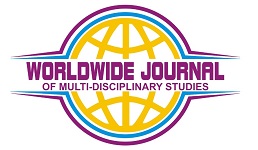Author: Prof. Monica Sahoo Yisp
Business University, India
Abstract
In a democracy election provide the basis of people’s choice and representation. They help provide to crystallize their interest and give expression to them. In the election it is decided who shall govern and who shall have the control over the government. These are, at the same time, also substantive processes of political mobilization and participation. It is through these processes that peripheral groups transcend their regional and caste identities, and acquire over time a certain commonality of economic interests and political identification which help establish a political framework of conflict and negotiation among divergent interest within the society. In India the demand for adult suffrage has become a sine qua non of independence movement. Few disputed its desirability. Direct election was to be the pillar of social revolution. The new Constitution armed the people with the power to change the content of political power through elections. This was guaranteed in Article 326 of the Constitution. This article reads, “The election to the House of the People and the Legislative Assembly of every state shall be on the basis of adult suffrage; that is to say, every person who is citizen of India and who is not less than eighteen years of age on such date as may be fixed in that behalf by or under law made by the appropriate legislature and is not otherwise disqualified under this Constitution. ” This extension of political power to the common man of India, irrespective of caste and sex might surely be characterized as political justice.
Keywords: Electoral Reforms, Democracy Election

